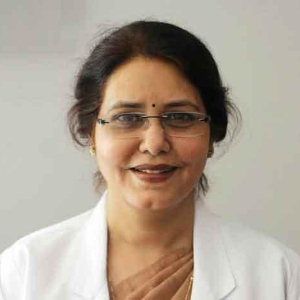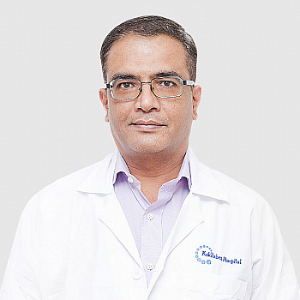Best Vaginal Cancer Doctors In India
Here are the most reputed surgical oncologists in India who have immense expertise in the treatment of gynaecological cancers like vaginal cancers, uterine cancers etc.
- Surgical Oncologist, New Delhi, India
- Over 35 years’ experience
Profile Highlights:
- Dr. Feroz Pasha is one of the best oncology surgeons in Delhi. His primary interest lies in Uro- and Gynaeoncology procedures.
- During his experience in Surgical Oncology, Dr. Pasha specialized in Port insertion and tumor ablation with radiofrequency.
- Surgical Oncologist, Chennai, India
- Over 15 years’ experience
Profile Highlights:
- Dr. Ajit Pai is one of the best Oncologists in the country with ‘n’ number of prizes and awards on his list of achievements.
- He has done specialized courses in the treatment and management of GI cancers, gynecological cancers, and cancer of food pipes.
- Surgical Oncologist, New Delhi, India
- Over 40 years’ experience
Profile Highlights:
- Dr. Ramesh Sarin is one of the best surgical oncologists in India, with a mammoth experience of 49 years.
- Furthermore, the veteran oncologist focuses on managing breast cancer and related disorders like sentinel node biopsy.
- She is also interested in Phyaryngeal Cancer, Uterine Cancer, Bladder Cancer, Cervical Cancer, Liver Cancer, Fallopian Tube Cancer, Bone Cancer, Lung Cancer, Colon and Rectal Cancer, Lymphedema, and Brain Cancer.
- Obstetrician & Gynaecologist, New Delhi, India
- Over 25 years’ experience
Profile Highlights:
- Dr. Usha Kumar is a veteran Gynaecologist and Obstetrician with over 25 years of proficient experience.
- Having performed over 10,000 surgeries so far, Dr. Usha has also managed to establish herself as a top-notch gynecologist in India.
- Surgical Oncologist, New Delhi, India
- Over 20 years’ experience
Profile Highlights:
- One of the finest oncologists in India, Dr. Ruqaya Ahmad Mir has been practicing surgical oncology for the past 20 years and is currently functioning as a Senior Consultant, Oncology at Indraprastha Apollo Hospital, New Delhi.
- Dr. Ruqaya Mir is known for her outstanding performance in some of the advanced surgical techniques which include Uterus and Ovary and Limb Conservation surgery and Cytoreductive surgery and Hyperthermic Intraperitoneal chemotherapy for advanced colorectal and recurrent ovarian malignancies.
- She is also a well trained Robotic Surgeon practicing implementation of minimal invasion in surgical oncology.
- Gynae Oncologist, Gurugram, India
- Over 25 years’ experience
Profile Highlights:
- Dr. Rama Joshi is an extensively skilled and professional Gynae oncologist in India who specializes in Gyne onco surgery and Robotic surgery for ovarian and other gynecological cancers.
- Dr. Joshi provides treatment and management for cancers of the ovaries, uterus, and cervix and performs all types of gynae onco surgeries.
- She received her training in cancer surgery and robotic surgery from prestigious institutes in France and the USA.
- Obstetrician & Gynaecologist, Gurugram, India
- Over 20 years’ experience
Profile Highlights:
- With an experience of 20 years, Dr. Buchun Mishra is a practicing gynecologist, who is proficient in performing gynae surgeries for ovarian cancer, uterine cancer, and cervical cancer.
- She finished her MBBS in 1999 from Veer Surendra Sai Institute of Medical Sciences and Research, Sambalpur, Odisha. She later completed her DNB in 2011 from Army Base Hospital, in New Delhi. In 2013, she completed her fellowship from Rajiv Gandhi Cancer Institute and Research Center, Delhi.
- Surgical Oncologist, Hyderabad, India
- Over 10 years’ experience
Profile Highlights:
- Dr. Girish Kumar is a Surgical Oncologist whose expertise lies in the surgical treatment of both adult and pediatric cancer and provides services for head and neck, breast, GI, bone and soft tissue, urological, colorectal, and gynecological cancers.
- Along with the surgical treatment of various types of cancers, Dr. Girish Kumar also provides pre and post-operative cancer care.
- He has also trained a number of medical students in surgical oncology and continues to mentor postgraduate students.
- Surgical Oncology, Mumbai, India
- Over 22 years’ experience
Profile Highlights:
- Dr. Yogesh Kulkarni is a well-known name in the field of Gynae Onco surgery.
- He holds an experience of more than 22 years and has performed more than 2000 gyne oncological surgeries.
- Dr. Yogesh Kulkarni has performed over 1000 gyne cancer surgeries in the hospital. He also holds the credit for 500 ovarian, 250 endometrial, 214 cervical cancer surgeries, and 144 robotic cancer surgeries at KDAH alone.
- He gained popularity when he performed the first Reported Fertility Sparing Surgery for Cervical Carcinoma on a 4-year-old for clear cell cervical carcinoma
- Gynecologist, Gynae-Oncologist, Gurugram, India
- Over 18 years’ experience
Profile Highlights:
- Dr. Dimple K Ahluwalia is one of the prominent Gynae-oncologists at Medanta-The Medicity at Gurugram in India.
- She has years of experience in treating serious and critically ill patients from different parts of the country.
- She has won numerous awards and honors for her countless contributions to the field of medicine.
Best Vaginal Cancer Treatment Hospitals in India
Indraprastha Apollo Hospital, New Delhi
- City: New Delhi, India
Hospital Highlights:
- Indraprastha Apollo Hospital is a 700-bedded multispecialty hospital in the heart of the capital of India. It is a part of Apollo Hospital group, one of India’s most reputed healthcare chains. Indraprastha Apollo Hospital has been accredited by Joint Commission International, making it the first internationally accredited hospital in the country in 2005.
- There are 52 specialties in the hospital with one of the best cardiology centers in the country. The hospital is also equipped with State of the art infrastructure facilities with the largest Sleep Lab in Asia and the largest number of ICU bed facilities in India.
- The hospital also has one of the largest dialysis units in India along with a dedicated Bone Marrow Transplant unit.
- The latest and highly advanced technologies that are installed in the hospital include Da Vinci Robotic Surgery System, PET-MR, PET-CT, Cobalt-based HDR Brachytherapy, Brain Lab Navigation System, Tilting MRI, Portable CT scanner, 3 Tesla MRI, 128 Slice CT scanner, DSA Lab, Endosonography, Hyperbaric Chamber and Fibro scan.
Fortis Memorial Research Institute, Gurugram
- City: Gurugram, India
Hospital Highlights:
- Fortis Memorial Research Institute is a multi-super-specialty, quaternary care hospital with 1000 beds. The hospital comprises reputed clinicians, and international faculty and is also equipped with cutting-edge technology. The hospital is a part of Fortis Healthcare Limited, a reputed chain of private hospitals in India.
- It is a NABH-accredited hospital that is spread across 11 acres of land and has a capacity of 1000 beds. The hospital has 55 specialties and is one of the premier health care centers in the Asia Pacific region popularly known as “the Mecca of Healthcare”.
- The hospital has 260 diagnostic centers and is also equipped with the latest and advanced techniques that include 3 Telsa which is the world’s first Digital MRI technology. The hospital also has world-class Radiation Therapy techniques which have been developed by leading technology experts from Elekta and Brain Lab.
Apollo Hospital, Chennai
- City: Chennai, India
Hospital Highlights:
- Apollo Hospitals, Chennai, is one of the best hospitals for heart care in India. Over the years, Apollo has expanded all over India, as a healthcare chain.
- India’s first ‘Only Pancreas’ transplant was performed in Apollo Hospital. The hospital is known for successfully performing Asia’s first en-bloc combined heart and liver transplant, and over the years, it has attained a remarkable achievement in the global healthcare space. Around 3-4 organ transplants are performed in the hospital per day.
- Equipped with over 500 beds, this hospital in Chennai was established in 1983 and since then has been among the most preferred hospital for patients from all over the world.
- The hospital holds accreditation of the NABH and JCI and is the first hospital in India to be ISO 9001 and ISO 14001 certified. It is also the first South Indian Hospital to receive subsequent reaccreditation from the JCI USA 4 times.
Medanta-The Medicity, Gurgaon
- City: Gurugram, India
Hospital Highlights:
- One of India’s best and largest multi-specialty hospitals, Medanta was built with the aim to bring India to the highest standards of medical care. The hospital has been providing the best medical services to its patients, since its inception, with care, commitment, and compassion.
- Equipped with 1250 beds, the hospital was founded by Dr. Naresh Trehan in the year 2009 with an aim to provide the best medical care at affordable costs. The hospital is spread across 43 acres and includes 45 operation theatres and 350 beds dedicated solely to ICU. The hospital includes over 800 doctors, and more than 22 specialty departments and has a dedicated floor for individual specialty in order to offer the best services under one roof.
- The hospital is considered one of the premier institutes in India for Cardiac Care and includes staffs and members of high caliber. The hospital has 6 distinct centers of excellence.
Max Super Specialty Hospital, New Delhi
- City: New Delhi, India
Hospital Highlights:
- One of the well-regarded providers in India committed to the highest standards of clinical excellence and patient care, Max Super Specialty Hospital is a part of Max Healthcare, which is the second-largest healthcare chain in India. Regarded as one of the most well-regarded healthcare providers in the country, Max Super Specialty Hospital is committed to the highest standards of clinical excellence as well as patient care. The hospital is also equipped with the latest technology as well as cutting-edge research. The hospital is known to deliver and ensure the highest level of patient care.
- The hospital has more than 500 beds and offers treatment for over 35 specialties. The hospital also holds the credit of having installed the first Brain Suite in Asia. This is a highly advanced Neurosurgical machine that allows MRI to be taken while surgery is ongoing.
- Other advanced and latest technologies are also installed in the hospital such as the 1.5 Tesla MRI machine, 64 Slice CT Angiography, 4D ECHO, LINAC, and 3.5T MRI machine.
Artemis Hospital, Gurugram
- City: Gurugram, India
Hospital Highlights:
- One of the most well-known hospitals in the Delhi NCR, Artemis Hospital is the first hospital in Gurugram to get accredited by the Joint Commission International.
- With more than 40 specialties, the hospital has been designed to be one of the most technically advanced hospitals in the country, with the best medical and surgical health care. The hospital has eleven special and dedicated centers, for Heart, Cancer, Neurosciences, etc.
- The latest technologies in the hospital include Endovascular Hybrid Operating Suite and Flat panel Cath Labs for the cardiovascular department, 3 Tesla MRI, 16 slice PET CT, 64 Slice Cardiac CT Scan, HDR Brachytherapy, and highly advanced Image Guided Radiation Therapy techniques (LINAC) are installed in the hospital.
- The hospital has won several awards as well, since its inception.
BLK Max Super Specialty Hospital, New Delhi
- City: New Delhi, India
Hospital Highlights:
- Equipped with 650 beds, BLK Superspecialty Hospital is the largest stand-alone private sector hospital in Delhi.
- With over 1500 healthcare providers and 150 globally renowned super specialists, the hospital is one of Asia’s largest Bone Marrow Transplant Centres. The hospital is known for having some of the best cancer doctors in the country.
- The hospital is NABH and NABL accredited and was inaugurated by the first Prime Minister of India. Pt. Jawahar Lal Nehru.
Gleneagles Global Hospitals, Chennai
- City: Chennai, India
Hospital Highlights:
- Established in 1999, Gleneagles Global Hospital, Chennai, is one of the top healthcare facilities in Southern India. It is part of the Gleneagles Hospital Chain, which is the fourth largest healthcare chain in the country. The hospital specializes in multi-organ transplants of kidneys, liver, lungs, heart, etc.
- The hospital has an excellent infrastructure and state-of-the-art lab and equipment set-up. The hospital boasts cutting-edge technologies, a highly skilled team of doctors and surgeons, and trained support staff. Located in Perumbakam, Chennai, it is one of India’s premier health care destinations. The hospital has performed some of the most complex surgical and clinical procedures in India including multi-organ transplantations.
- The hospital’s lung transplantation program is one of the best in the country. The hospital is known for having performed India’s first single lung transplant and first minimal invasive lung transplant. It is also the only Indian hospital to be associated with King’s College Hospital, London, United Kingdom for liver transplantations.
Fortis Hospital, Mulund, Mumbai
- City: Mumbai, India
Hospital Highlights:
- Fortis Hospital in Mulund is a 315-bed multi-speciality tertiary care hospital with five JCI accreditations that offers a wide variety of diagnostic and therapeutic services. The Fortis Hospital in Mulund delivers patient-centred treatment with cutting-edge technology, highly skilled and experienced surgeons, and paramedical staff.
- This institution houses Maharashtra’s largest multi-organ transplant centre. It is also the first heart transplant centre in western India to conduct 100 or more consecutive heart transplants in under four years. It is the only hospital in the city to have multi-organ transplants and has handled the youngest patient for angioplasty. Fortis Hospital Mulund now boasts the first advanced surgical robot in central Mumbai.
- Cardiology and heart surgery, urology, nephrology, neurosciences, orthopaedics, digestive care, emergency and critical care, and maternity care are among the services provided by the hospital.
Kokilaben Dhirubhai Ambani Hospital, Mumbai
- City: Mumbai, India
Hospital Highlights:
- Kokilaben Dhirubhai Ambani Hospital, Named after the wife of Indian industrialist Dhirubhai Ambani, the founder of Reliance Industries, this is one of the top hospitals in Mumbai. This 750-bed multi-specialty hospital became operational in 2009. Known as one of India’s most advanced tertiary care facilities, the hospital is designed to raise India’s global standing as a healthcare hub, with an emphasis on excellence in clinical services.
- Kokilaben Dhirubhai Ambani Hospital uses Protocol and Care Pathway based treatment models to ensure the best outcomes for patients.
- The hospital represents a confluence of top-notch talent, cutting-edge technology, state-of-the-art infrastructure, and, most importantly commitment.
- The hospital also holds the accreditation of the NABH, NABL, CAP, and JCI.
- The hospital has been recognized as the No. 1 Multispecialty Hospital in Mumbai and the West Zone for the fifth year in a row in 2020 by The Week.
Vaginal Cancer
Occurring in the vagina, vaginal cancer is a rare cancer. The vagina is a muscular tube connecting the uterus with the outer genitals. It mostly occurs in the cells lining the surface of the vagina called the birth canal. Primary vaginal cancer that begins from your vagina is rare. However, the other types of cancer spread from different parts of your body to the vagina. Vaginal cancer is difficult to treat if it spreads beyond the vagina.
Types of Vaginal Cancer
Depending upon the cell type of origin of cancer, the various types of vaginal cancer are:
- Vaginal squamous cell carcinoma – It is the most common vaginal cancer. It begins in the flat, thin cells called squamous cells. The squamous cells form a lining on the surface of the vagina.
- Vaginal melanoma – Melanocytes are the pigment-producing cells. This cancer occurs in these pigment-producing cells of the vagina.
- Vaginal adenocarcinoma – The glandular cells are present on the surface of the vagina. This cancer begins in these glandular cells.
- Vaginal sarcoma – This type of cancer develops either in the muscle cells or in connective tissue cells that present in the walls of the vagina.
Causes of Vaginal Cancer
Although doctors can’t figure out what exactly causes vaginal cancer, it begins when the healthy cells undergo genetic mutation. The normal cells turn into the abnormal cells because of this genetic mutation. The growth, multiplication, and death of the normal cells are at a set rate. However, growth & multiplication of cancer cells is beyond the control and these cells don’t die soon. The abnormal cells accumulate to form a tumor or mass. These cancer cells break off from the tumor or mass to invade the surrounding healthy tissues and spread to other parts of the body.
Symptoms of Vaginal Cancer
In the initial stages of vaginal cancer, the signs and symptoms are absent. However, they may develop and appear with the progression of cancer.
- Watery vaginal discharge
- Frequent urination
- Unusual vaginal bleeding
- Pain during urination
- Pelvic pain
- Mass or lump in the vagina
- Constipation
Diagnosis of Vaginal Cancer
Screening for vaginal cancer
Before the signs and symptoms develop, your doctor may find vaginal cancer during a routine pelvic examination. For this, your doctor may examine your outer genitals followed by insertion of two fingers into your vagina while simultaneously pressing your abdomen with the other hand to feel your ovaries and uterus.
Inspection of vagina
Doctors use a special lighted magnifying instrument called a colposcope to examine your vagina. You might need to undergo colonoscopy for the inspection of the vagina and to allow your doctor to magnify the surface of the vagina. The instrument reveals areas with abnormal cells.
Vaginal tissue testing
Your doctor will ask you to undergo a biopsy. For this, he or she will remove a part of the suspected tissue to test for the presence of the cancer cells. He or she may take the sample during a colposcopy examination. Your doctor will send the sample of the tissue to the lab for the testing snd to detect the presence of cancer cells.
Imaging tests
You may have to undergo imaging tests that determine the spread of cancer. The different imaging tests are computerized tomography (CT) scans, positron emission tomography (PET), X-rays, and magnetic resonance imaging (MRI).
Tiny cameras for inspection
There are some procedures in which your doctor uses tiny cameras to view the inside of your body. It helps your doctor in determining the spread of cancer in various parts of the body. These tiny cameras also help your doctor to see the inside of your rectum (proctoscopy) and your bladder (cryptoscopy).
Treatment options for vaginal cancer
The type of vaginal cancer that you have and the staging of cancer determine the most viable treatment option for you. On the basis of goals of the treatment and the side effects of any specific treatment, your doctor can decide the treatment for you by taking your consent. It comprises radiation and surgery.
Radiation therapy
The therapy kills the cancer cells but may also cause side effects by damaging nearby cells. The intensity of radiation determines the side effects of radiation therapy. Your doctor will use high-powered energy beams to kill the cancer cells.
- External Radiation- The doctor will direct the radiation towards your pelvis or abdomen, depending upon the extent of the cancer spread. Mostly, doctors treat women with external beam radiation.
- Internal Radiation- In this, the doctor uses radioactive devices like wires or cylinders and place them in the vagina or the surrounding tissue. Most women with early-stage vaginal cancer undergo internal radiation treatment. However, some others may require external radiation followed by internal radiation.
Surgery
Removal of small tumors
Vaginectomy
Removal of a part of your vagina is vaginectomy while the removal of the entire vagina is a radical vaginectomy. These surgeries are necessary for the removal of cancer from your body. Your doctor may suggest removing your uterus and ovaries (hysterectomy) or removing the nearby lymph nodes (lymphadenectomy) along with vaginectomy, depending on the spread of cancer in your body.




























